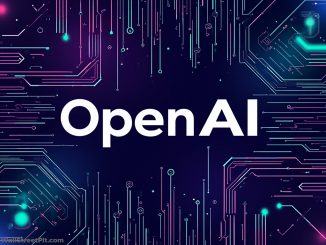
In a significant twist in the ongoing debate over the commercialization of artificial intelligence (AI), Encode, a nonprofit organization, has allied with Elon Musk to oppose OpenAI’s proposed shift from a nonprofit to a for-profit entity. Encode has filed for permission to submit an amicus brief in the U.S. District Court for the Northern District of California, supporting Musk’s injunction against OpenAI’s transition.
The crux of Encode’s argument is that moving OpenAI to a for-profit model could undermine its original mission of developing AI technology in a manner that prioritizes public safety and benefits. They assert that such a transition would likely favor financial gains over the ethical and safe development of transformative technologies like artificial general intelligence (AGI).
OpenAI, initially founded as a nonprofit, has since developed a hybrid structure where it operates with both nonprofit and for-profit components. The latest proposal involves converting its for-profit arm into a Delaware Public Benefit Corporation, a move aimed at attracting further investment while ostensibly maintaining a focus on societal benefit. However, this has sparked concerns among various stakeholders about the potential shift in priorities.
Elon Musk, who was an early contributor to OpenAI’s nonprofit phase, has taken legal action to block this transition, arguing that it diverges from the original ethos and mission he helped establish. His lawsuit from November claims that OpenAI has not adhered to its founding principles, particularly in promoting the broad, beneficial use of AI technology.
OpenAI has retorted by dismissing Musk’s claims as baseless, maintaining that their structural changes are in line with the evolving needs of AI development and its broader impact. The involvement of major corporations like Microsoft (MSFT), which has invested a total of $13 billion in OpenAI, underscores the deep intertwining of financial interests with technological advancement. This commitment began with an initial $1 billion investment in 2019, followed by additional funding over the years, including $750 million in the most recent round in October 2024. Such backing adds another layer of complexity to the debate.
The opposition isn’t limited to Musk and Encode; Meta Platforms (META). has also voiced concerns, suggesting that such a shift could have broad repercussions for Silicon Valley’s approach to AI development, potentially setting a precedent for how AI companies balance profit motives with public good.
Encode’s brief underscores the risks associated with moving AI development under a for-profit model, arguing for the necessity of nonprofit oversight to ensure that advanced AI systems are developed with safety and ethical considerations at the forefront. This legal battle thus becomes a pivotal moment in determining the future governance and objectives of AI research, questioning whether the pursuit of AGI should be driven by financial incentives or by a commitment to humanity’s collective welfare.
The potential restructuring of OpenAI into a Public Benefit Corporation could see substantial financial benefits for key figures like CEO Sam Altman, with estimates suggesting a personal gain of up to $10.5 billion. This has further fueled debates about the motivations behind such a transition, with critics like Musk arguing it represents a departure from OpenAI’s foundational goals.
As this legal tussle unfolds, it not only challenges OpenAI’s current direction but also sets the stage for broader discussions on how AI should be developed, governed, and utilized in society, balancing innovation with ethical considerations.
h/t TC





Leave a Reply